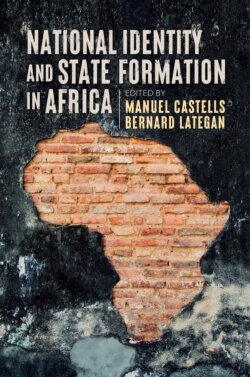Читать книгу National Identity and State Formation in Africa - Группа авторов - Страница 13
Magic and terror of Rhodes’s imperial power
ОглавлениеInstead of being defined and confined by the locals of the host communities of his encounters, the way most amakwerekwere of modest ambition and means are nowadays, Rhodes defined and confined those he encountered in his hunter-gatherer endeavours. He was on a quest for greener pastures and fresher pleasures. Armed with the powerful technologies of dominance – such as writing, books, maps, guns, ships, trains, telegraphs, cars and telephones – inherited from his forebears and perfected in the course of his own adventures, Rhodes was able to penetrate, conquer, possess and tame at will and at first contact the powerful – mind, body and soul – of the strange and distant lands of the Heart of Darkness that Africa represented to the civilized savagery of his native England.
Aided and abetted by his repertoire of perfected technologies of the self and power, Rhodes took over, ruled, developed and exploited for his personal profit and that of Britain the lands and bodies of those he conquered, turning them into amakwerekwere on their own native soil, their homeland. Rhodes was so thrilled with ‘Rhodesia’ (‘Rhodesland’ and ‘Cicelia’ were other names suggested for the new country) (Plomer 1984 [1933]: 65) as a symbol of his personal power and achievements, that he is reported to have proclaimed: ‘Has anyone else had a country called after their name? Now I don’t care a damn what they do with me!’ (Flint 1974: 156; see also Plomer 1984 [1933]: 64).
Lobengula, King of the Matabele, compares himself to a fly being eaten up by Rhodes the chameleon. He was convinced that a man who came rampaging around his kingdom uninvited could mean no good. Lobengula and the Matabele were not alone in being consumed ferociously by adventurer amakwerekwere at the service of the nobility of Europe. Other lands and nobility ‘have suffered undue neglect’ as a result of ‘white intrusion’ (Saunders 1979).
Rhodes was not unlike his fellow adventurer amakwerekwere who had harnessed and exported their hosts as slaves and freak-show entertainers to Europe and the Americas. He was said to ‘look on men in the abstract as instruments of the work to be done’ (Baker 1934: 88). When Rhodes boasted that diamond-rich Kimberley was the ‘richest community in the world for its size’, this was perhaps true for everyone but Kimberley’s black migrant workers from all over the vast territory that was yet to pass for South Africa as we know it today (Beinart 2001: 28). The precarious economic and social conditions of black labourers, migrant and indigenous alike, have failed to improve in any significant way since the diamond and gold rushes of yesteryear, even with the end of apartheid and the graduation into legal and political citizenship of its black victims. The violent suppression and massacre of striking Marikana mineworkers in August 2012 attest to this.
